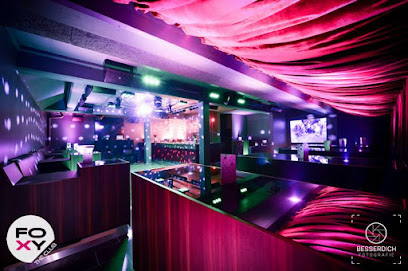
Rhine River: Europe's Majestic Waterway
Discover the Rhine River: A legendary waterway through the heart of Europe, offering stunning scenery, historic castles, and vibrant culture from the Swiss Alps to the North Sea.
The Rhine River, a vital artery of Europe, flows through six countries, shaping history, culture, and commerce for millennia. From its source in the Swiss Alps to its delta in the Netherlands, the Rhine offers a tapestry of experiences. Picturesque vineyards cling to steep hillsides dotted with medieval castles, remnants of a bygone era when robber barons controlled the river's flow. Bustling cities like Cologne and Strasbourg showcase stunning architecture and vibrant cultural scenes. Whether you're drawn to the romance of the Rhine Gorge, the allure of historic towns, or the scenic beauty of its banks, the Rhine River promises an unforgettable journey through the heart of Europe, blending natural wonders with centuries of human history. A cruise along its waters is an immersive experience, revealing the soul of the continent.
A brief summary to Rhine River
Local tips
- Consider a river cruise for a relaxing and comprehensive way to see multiple cities and scenic highlights along the Rhine.
- Explore the Rhine Gorge by train, bike, or car to fully appreciate the castles, vineyards, and charming villages.
- Sample local wines, especially Riesling, in the Rhine's renowned wine regions, and take a winery tour.
- Check for local festivals and events along the Rhine, such as wine festivals, Christmas markets, and summer concerts, to enhance your visit.
- Book accommodations and tours in advance, especially during peak season, to ensure availability and the best prices.
Getting There
-
Public Transport
Accessing the Rhine River is easily done via the efficient regional public transport network. From major hubs like Cologne or Frankfurt, take a regional train (RE or RB) to towns along the river such as Koblenz, Rüdesheim, or Bacharach. These trains offer frequent services and scenic views. A single journey from Cologne to Koblenz, for example, takes approximately 1 hour and costs around €20-€30. Once in these towns, local buses and ferries provide access to specific points of interest along the river. Check the local transport authority (e.g., VRR for the Rhine-Ruhr area) for schedules and fares.
-
Driving
For those driving, the A61 and A3 motorways run parallel to the Rhine River, providing easy access to various towns and attractions. However, parking in the historic centers can be limited and expensive. Consider parking in designated Park & Ride areas outside the town centers and using public transport for the final leg. Parking fees in town centers typically range from €2-€4 per hour. Be aware that some scenic routes along the river may have tolls or require a vignette (e.g., in Switzerland). Also, during peak season, traffic congestion can occur, especially on weekends.
-
Ferry
Several ferry services operate across the Rhine, connecting towns on opposite banks. These ferries are particularly useful for exploring the Rhine Gorge and accessing attractions on both sides of the river. A typical ferry crossing costs around €2-€5 per person, or €5-€10 per car. Ferries usually operate frequently during the day, but schedules may be limited in the off-season or during inclement weather. Check local ferry schedules for specific routes and operating hours.
Discover more about Rhine River
Iconic landmarks you can’t miss
Rhine River
0.0 km
Discover the Rhine River: A legendary waterway through the heart of Europe, offering stunning scenery, historic castles, and vibrant culture from the Swiss Alps to the North Sea.

Friedensdenkmal “Mahnmal des Friedens - PAX AETERNA“
5.1 km
Discover the Friedensdenkmal in Philippsburg, a profound monument dedicated to peace, reflection, and historical significance, perfect for every traveler.
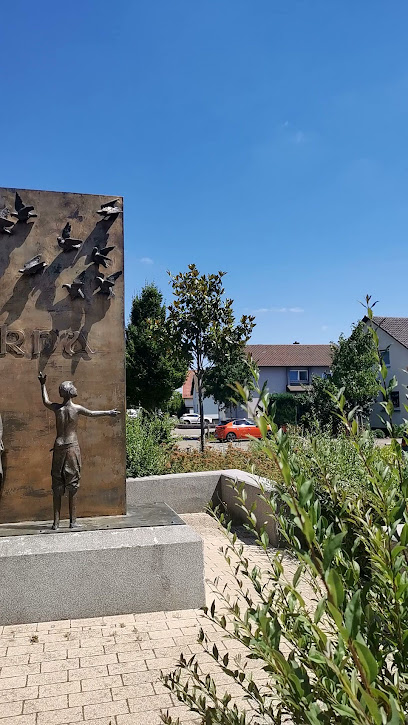
Historical Museum of the Palatinate
10.2 km
Explore the rich heritage of the Palatinate at the Historical Museum of the Palatinate in Speyer, where history comes alive through captivating exhibits.
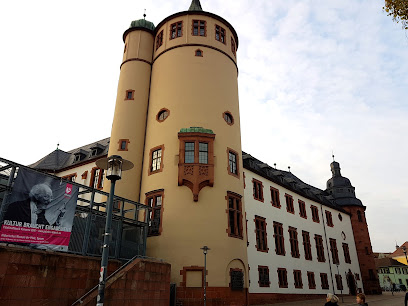
Ölberg
10.3 km
Discover the serene beauty and historical significance of Ölberg in Speyer, a perfect retreat for nature lovers and history enthusiasts alike.
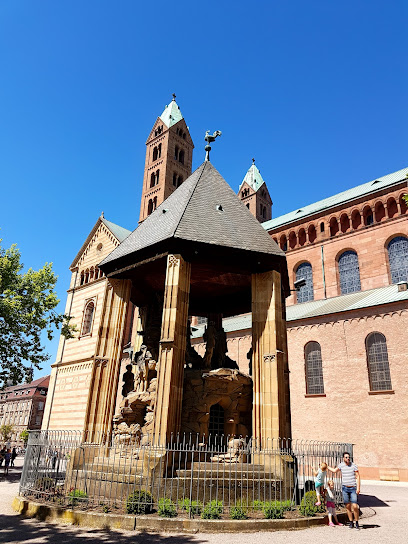
Speyer Cathedral
10.4 km
Discover Speyer Cathedral, a majestic Romanesque masterpiece and UNESCO World Heritage site, where emperors once reigned and history echoes through its towering arches.
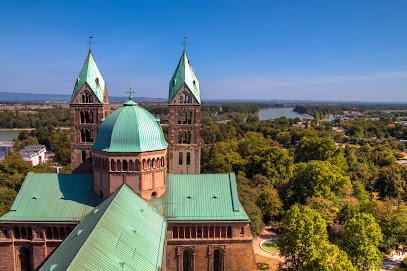
Ehemaliger Standort eines Leugensteins des Kaisers Diocletian
19.9 km
Discover the historic charm of the former site of Emperor Diocletian's Leugenstein in Limburgerhof, a captivating glimpse into the Roman Empire's legacy.
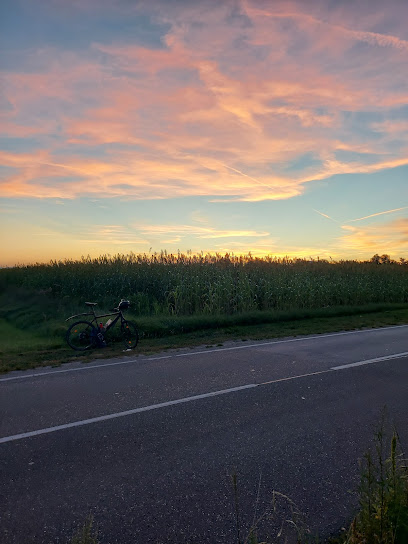
Palatina Events
22.5 km
Discover the beauty and culture of the Palatinate region with Palatina Events - your gateway to unforgettable tours and experiences.
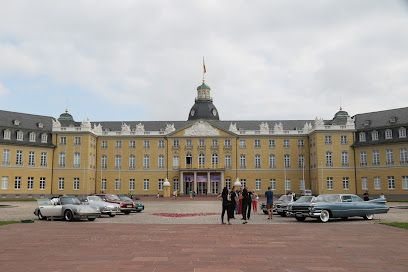
Burgruine Rietburg
22.8 km
Explore the rich history and breathtaking views at Burgruine Rietburg, a medieval castle ruin in Rhodt unter Rietburg, Germany.
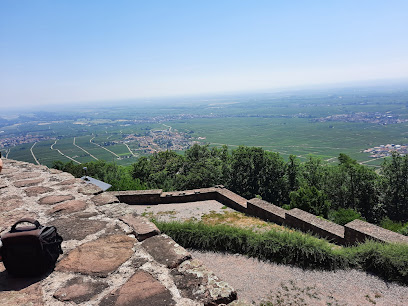
Kalmithaus
24.1 km
Discover Kalmithaus: A Palatine culinary haven blending traditional German flavors with breathtaking mountain views, perfect for nature lovers and food enthusiasts.
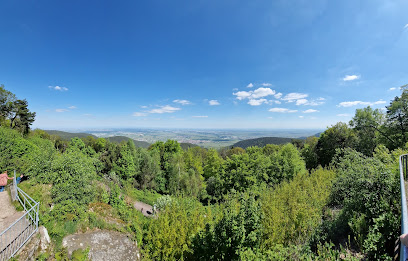
Federal Constitutional Court
24.3 km
Visit Germany's Federal Constitutional Court in Karlsruhe, the guardian of the Basic Law, and witness the heart of German democracy in action within its transparent architecture.
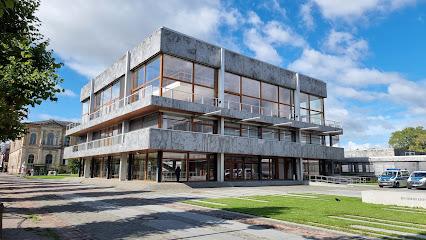
Chapel "Small Kalmit"
24.4 km
Experience serenity and breathtaking views at Chapel Small Kalmit in Landau, a charming destination for spiritual reflection and nature lovers.

Kaiserstraße 217
24.7 km
Experience Karlsruhe's vibrant Kaiserstraße: a blend of historic charm and modern shopping, offering diverse retail, culinary delights, and cultural events in the heart of the city.
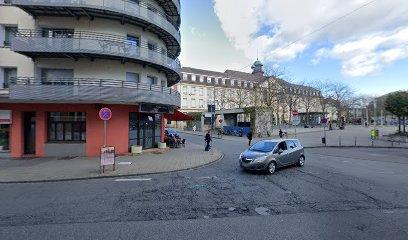
Federal Court of Justice
24.9 km
Discover the heart of German law at the Federal Court of Justice in Karlsruhe, a symbol of justice and legal tradition, and explore the adjacent Museum of Legal History.
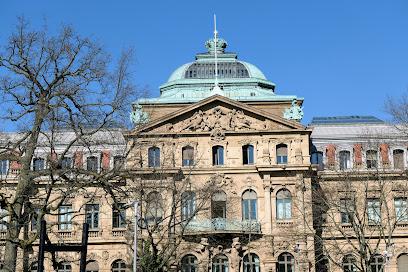
Rondellplatz
25.0 km
Discover Rondellplatz in Karlsruhe: A neoclassical square steeped in history, crowned by the Constitution Column, and surrounded by architectural gems and vibrant city life.
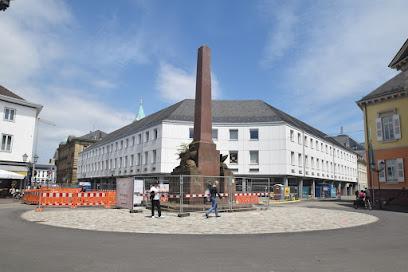
Lagenstein
26.2 km
Discover Lagenstein in Forst an der Weinstraße - a stunning tourist attraction blending history, nature, and breathtaking views in one picturesque location.
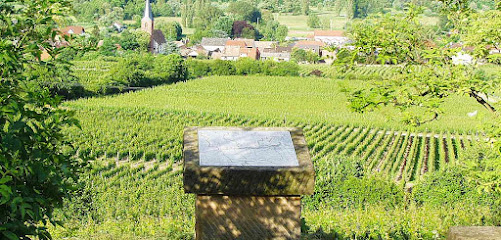
Unmissable attractions to see
Schwetzingen Palace
21.6 km
Explore Schwetzingen Palace: A Baroque masterpiece with stunning gardens and rich history in the heart of Germany.
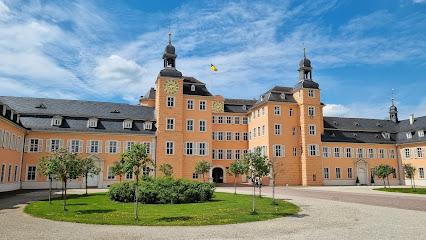
Schwetzingen
21.8 km
Experience the beauty and history of Schwetzingen, home to stunning gardens and the exquisite Schwetzingen Palace in Germany's scenic landscape.
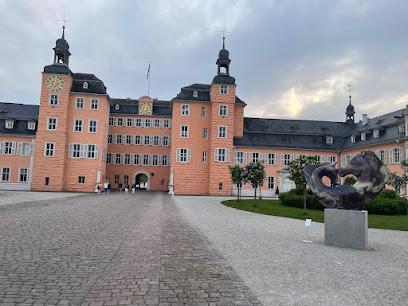
Victory and Peace Monument
22.0 km
Explore the Victory and Peace Monument, a historical gem in Edenkoben, offering stunning views, rich heritage, and a serene atmosphere.
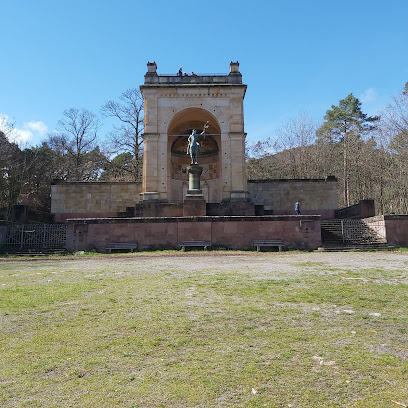
Hambach Castle
22.1 km
Discover Hambach Castle, a historical landmark celebrating German democracy with stunning views and a rich heritage amidst the scenic Palatinate vineyards.
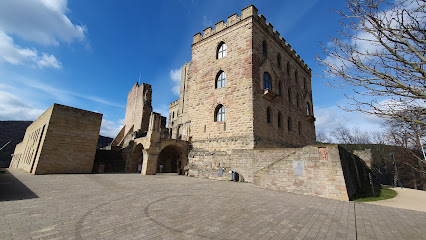
Neustadt/Weinstrasse Railway Museum
22.2 km
Visit the Neustadt/Weinstrasse Railway Museum for an immersive journey through Germany's railway history, featuring stunning exhibits and engaging activities for all ages.
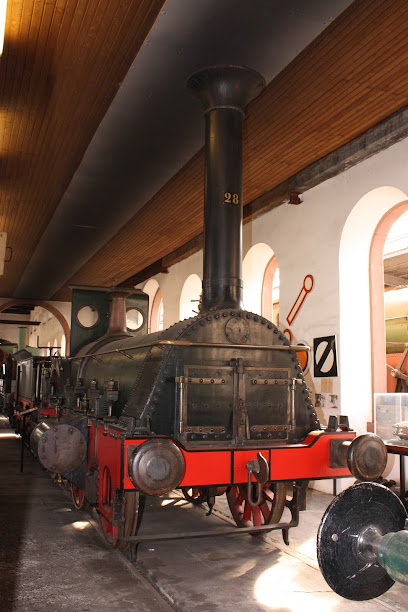
Schloss Kropsburg
22.2 km
Discover the majestic Schloss Kropsburg in Sankt Martin, a captivating castle surrounded by stunning hiking trails and rich history, perfect for every traveler.
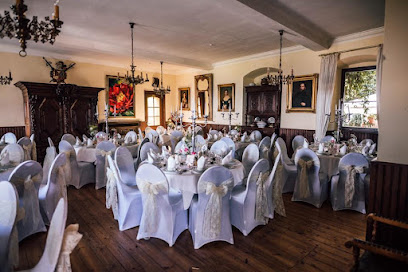
Rietburg Chairlift
22.4 km
Experience stunning views and serene landscapes aboard the Rietburg Chairlift in Edenkoben, a perfect getaway for nature lovers and adventure seekers.
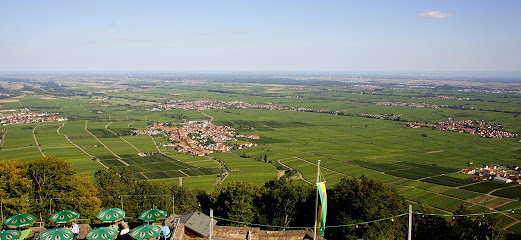
Paradiesbrunnen
22.7 km
Discover the charm of Paradiesbrunnen in Neustadt an der Weinstraße, a picturesque fountain surrounded by rich history and vibrant local culture.
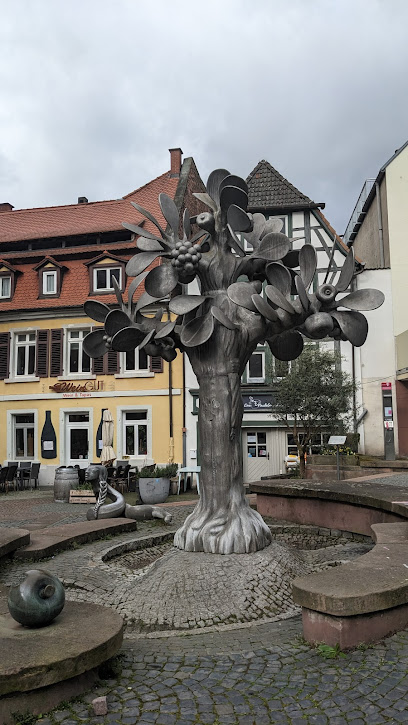
Alte Burg
23.2 km
Discover the historic Alte Burg in Gimmeldingen, a captivating castle with stunning views and rich cultural heritage, perfect for every traveler.
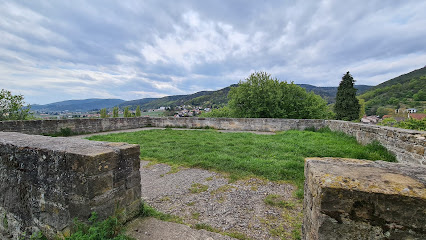
König-Ludwig-Pavillon
23.6 km
Experience breathtaking views and the charm of the Rhine Valley at the König-Ludwig-Pavillon, a must-visit observation deck in Neustadt.
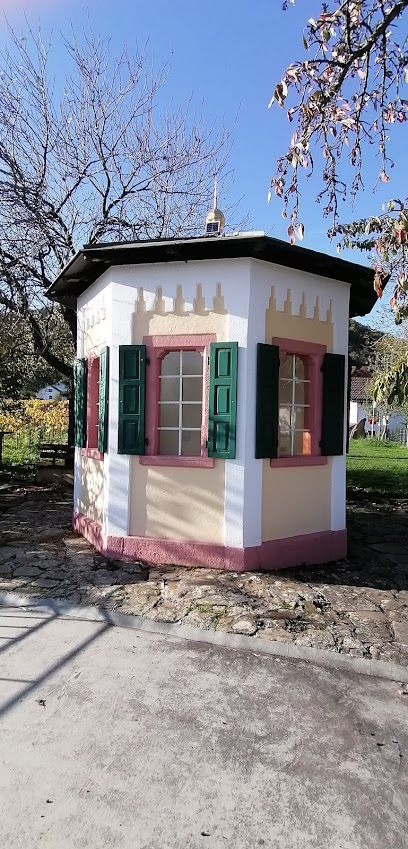
Schlossgarten
24.0 km
Explore the serene beauty of Schlossgarten in Karlsruhe, a stunning state park perfect for relaxation, cultural exploration, and leisurely strolls.
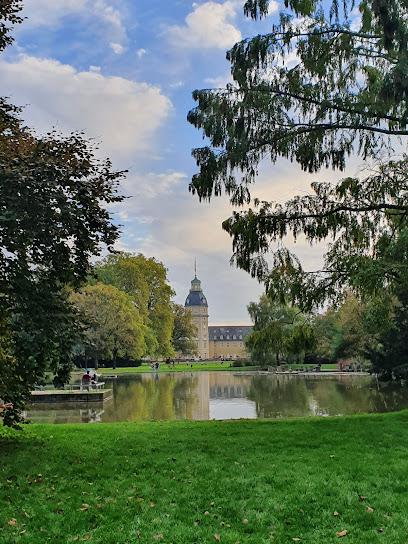
Geissbockbrunnen
24.2 km
Experience the charm of Geissbockbrunnen, Deidesheim's iconic fountain, a symbol of local heritage and a perfect spot for relaxation and photography.
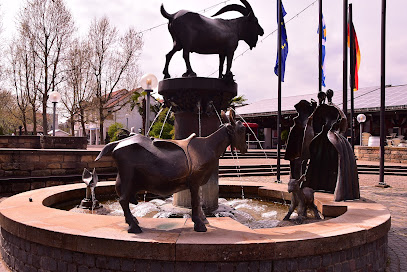
Karlsruhe Palace
24.3 km
Experience the elegance of Karlsruhe Palace, a baroque marvel featuring fascinating exhibitions, beautiful gardens, and cultural events in the heart of Karlsruhe.
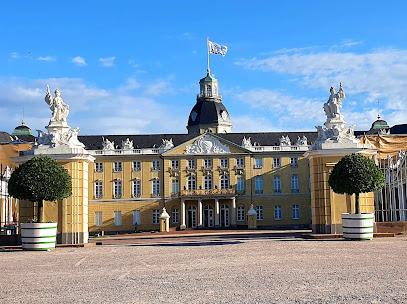
State Museum of Baden
24.3 km
Explore the State Museum of Baden in Karlsruhe, a cultural gem showcasing the rich history and art of the Baden region.
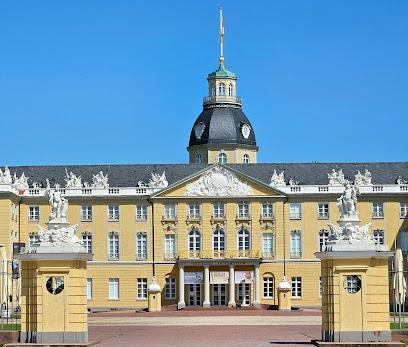
Karlsruhe Botanical Garden
24.3 km
Discover the beauty and tranquility of Karlsruhe Botanical Garden, a historic oasis filled with diverse flora and serene landscapes in the heart of Germany.
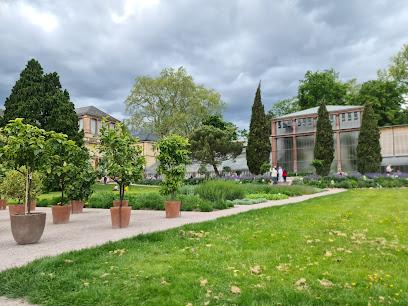
Essential places to dine
Pfälzer Stube
17.8 km
Experience authentic Palatine cuisine at Pfälzer Stube in Herxheim bei Landau – where tradition meets exceptional culinary artistry.
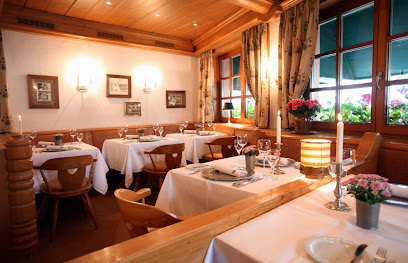
Restaurant Friesenstube
23.1 km
Experience authentic German cuisine at Restaurant Friesenstube in Landau – where local flavors meet exceptional hospitality.
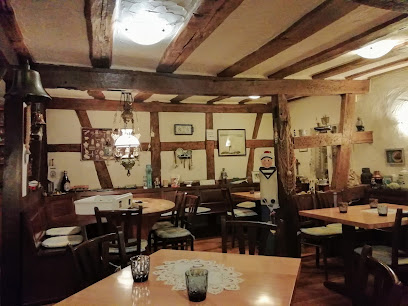
Stories Pop-Up Kitchen
23.4 km
Discover culinary excellence at Stories Pop-Up Kitchen in Heidelberg - where tradition meets innovation in every dish.
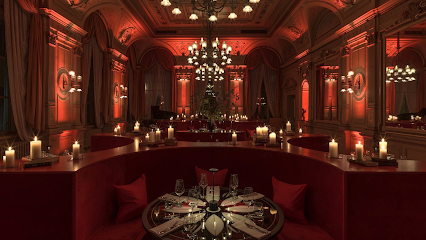
Restaurant Schwarzer Hahn
24.4 km
Experience gourmet French and Palatine cuisine at Restaurant Schwarzer Hahn in Deidesheim - where every meal is a celebration of taste.
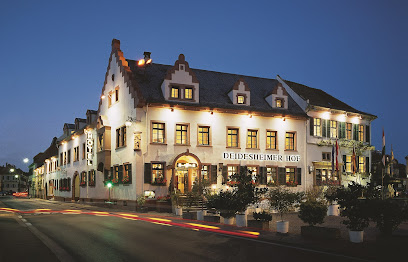
Restaurant Zum Prinz
24.7 km
Savor authentic German flavors at Restaurant Zum Prinz in Ilbesheim bei Landau – A culinary haven with a charming beer garden.
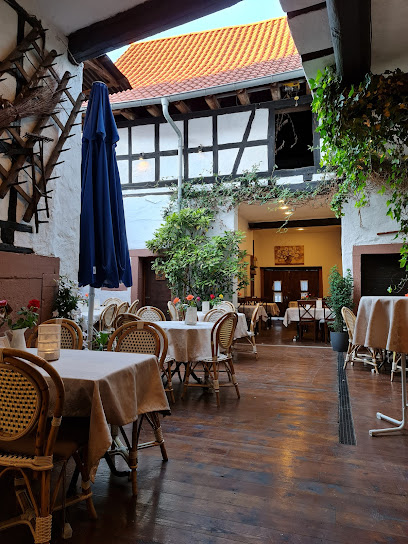
Restaurant Hubertushof
24.7 km
Experience exquisite German cuisine at Restaurant Hubertushof in Ilbesheim - a culinary treasure offering seasonal dishes and fine wines.
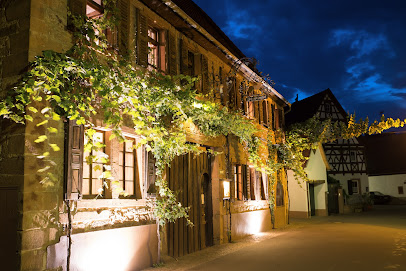
Weinstube Brennofen
24.7 km
Discover authentic German flavors at Weinstube Brennofen - where tradition meets exquisite taste in Ilbesheim bei Landau.
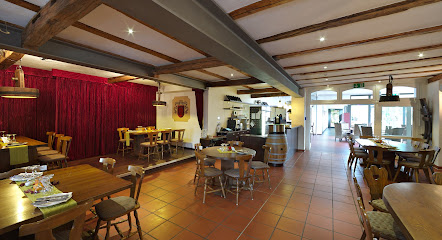
Restaurant DUFKE
26.5 km
Discover authentic German cuisine at Restaurant DUFKE in Heidelberg—where tradition meets taste in every dish.
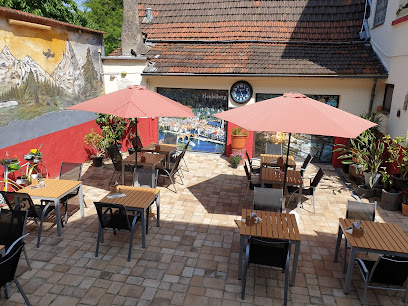
Adriatic Seven
27.6 km
Discover Adriatic Seven in Heidelberg: A Mediterranean culinary delight that promises an unforgettable dining experience with exquisite flavors.
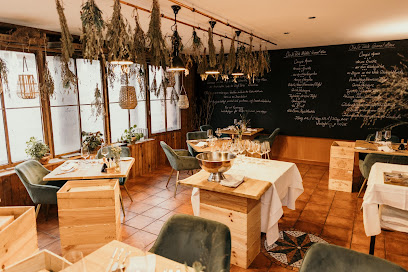
Heid's Grill & Restaurant
27.7 km
Discover culinary excellence at Heid's Grill & Restaurant in Heidelberg—where succulent steaks meet a warm atmosphere for unforgettable dining.
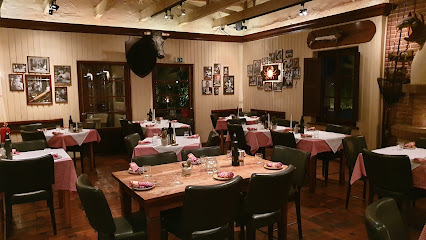
Restaurant Schneider
27.7 km
Experience authentic German cuisine at Restaurant Schneider in Dernbach, where tradition meets taste in a cozy atmosphere.
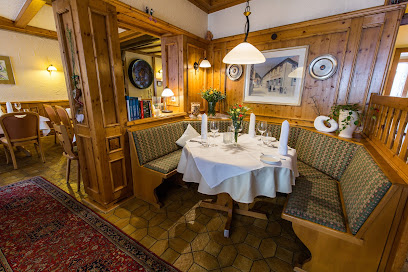
Qube Signature Bar & Restaurant
27.9 km
Discover Heidelberg's culinary scene at Qube Signature Bar & Restaurant - where exquisite flavors meet elegant ambiance.
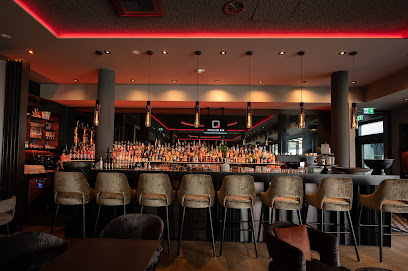
NEO - Bar und Restaurant
28.1 km
Experience culinary excellence at NEO in Heidelberg, where grilled delights meet exquisite sushi in a stylish setting.
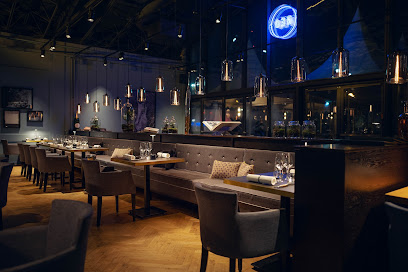
Restaurant Tati
28.7 km
Experience authentic French cuisine at Restaurant Tati in Heidelberg – perfect for families and food lovers alike.
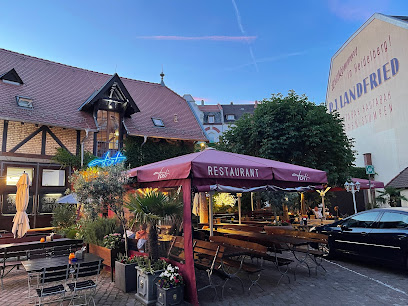
Café Restaurant Saron
28.8 km
Experience authentic Eritrean cuisine at Café Restaurant Saron in Heidelberg - where every dish tells a story.
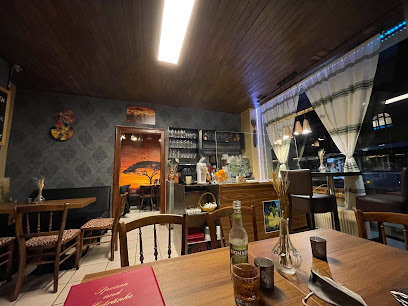
Markets, malls and hidden boutiques
The Rock Shop e.K.
27.3 km
Discover unique styles at The Rock Shop in Heidelberg—where local design meets contemporary fashion for every traveler.
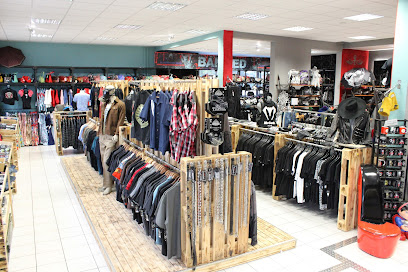
victor&linchen
27.8 km
Explore the charming gift shop victor&linchen in Heidelberg, where unique souvenirs, fashion accessories, and heartfelt greeting cards await.
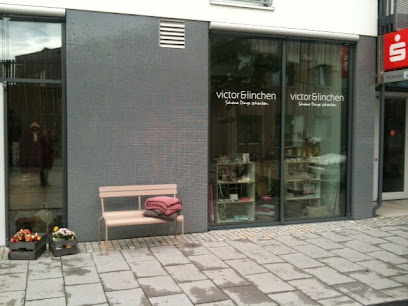
HeidelStein
27.9 km
Discover the magic of play at HeidelStein, Heidelberg's enchanting toy store featuring unique toys for all ages.
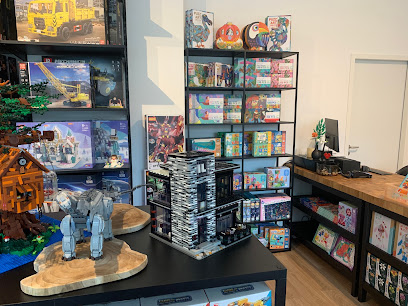
l'Armadio
28.4 km
Explore sustainable fashion at l'Armadio, Heidelberg's premier destination for unique, pre-loved clothing treasures.
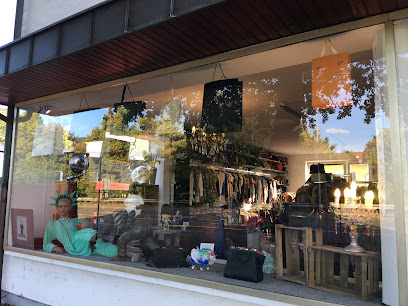
Balloon Boutique Heidelberg
28.4 km
Explore Balloon Boutique Heidelberg: A Colorful Haven for Celebrations with Unique Balloons and Party Supplies.
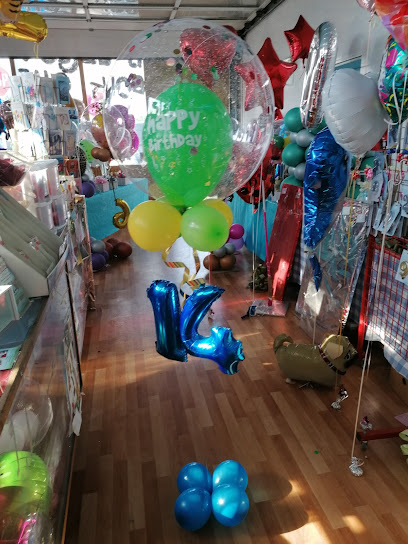
Schmitt & Hahn bookstore
28.4 km
Discover a treasure trove of books and unique gifts at Schmitt & Hahn bookstore in Heidelberg's bustling Hauptbahnhof.
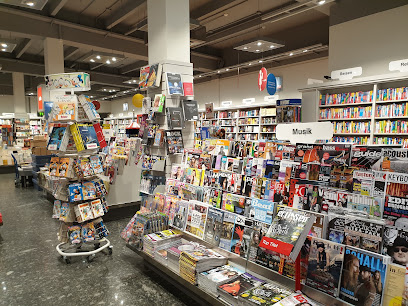
Backpacker Travel & Footwear Heidelberg
28.5 km
Discover top-notch outdoor gear and expert guidance at Backpacker Travel & Footwear Heidelberg for your next adventure in the picturesque city of Heidelberg.
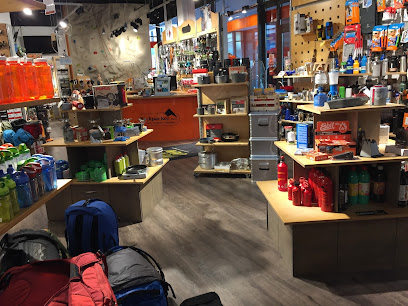
Rhein-Galerie Ludwigshafen
28.6 km
Explore the Rhein-Galerie Ludwigshafen, a vibrant shopping paradise with diverse stores, dining options, and entertainment by the Rhine River.
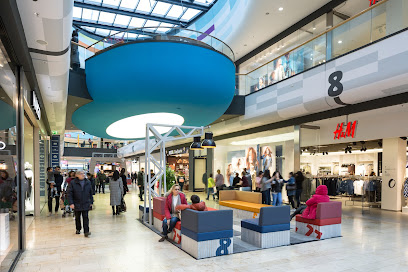
US SHOP MANNHEIM
28.6 km
Explore US Shop Mannheim, where fashion meets quality in a vibrant shopping experience, perfect for tourists seeking trendy clothing and shoes.
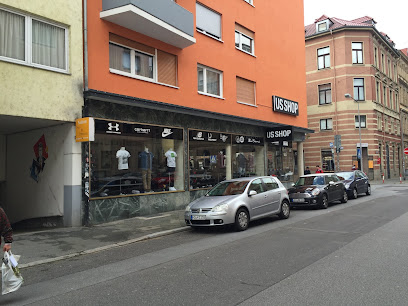
neyuQ ceramics
28.8 km
Explore handcrafted pottery and unique gifts at neyU Ceramics, Heidelberg's charming art studio and gift shop that captures the essence of local artistry.
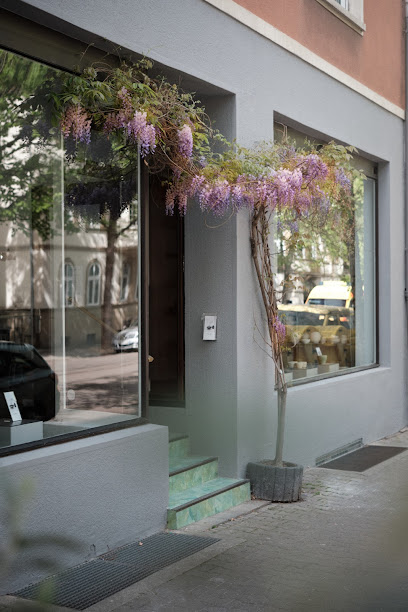
Fantasy Kolosseum Heidelberg
29.4 km
Explore the vibrant gaming culture at Fantasy Kolosseum Heidelberg, your ultimate destination for board games and community fun.
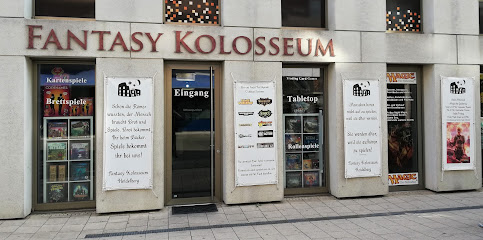
Boutique Alma
29.5 km
Explore Boutique Alma in Heidelberg for unique clothing and exquisite costume jewelry, capturing the essence of local style.
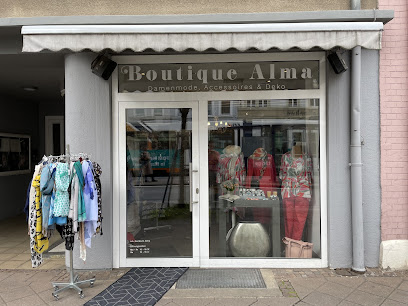
MyWay secondhand
29.6 km
Explore MyWay Secondhand in Heidelberg for unique, sustainable fashion choices that tell a story.
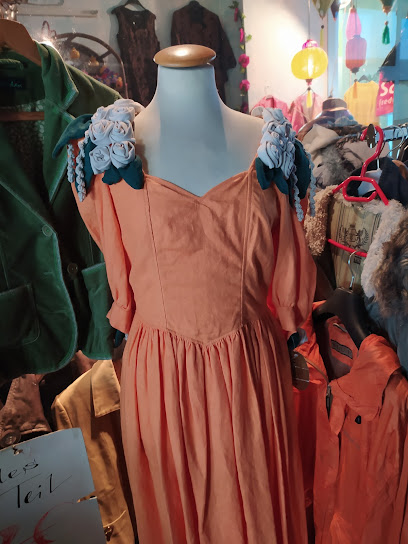
Geschenk-Boutique Heidelberg-Neuenheim | Originelle Geschenk-Ideen | Büro-Baum Papeterie
29.6 km
Explore Heidelberg’s charming Büro Baum Gift Boutique for unique gifts and delightful stationery that reflect the city's artistic spirit.

glore Heidelberg
29.8 km
Explore Glore Heidelberg for unique, sustainable fashion that enhances your style while caring for the planet.
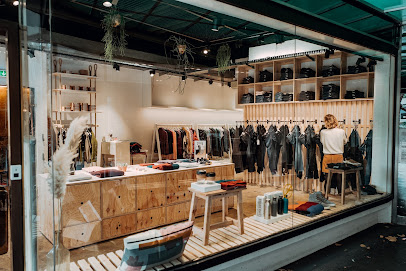
Essential bars & hidden hideouts
Die Cocktailbar - Alexander Grewenig // Mobiler Cocktail- und Barservice
10.1 km
Discover the art of mixology at Die Cocktailbar, a premier mobile cocktail service in Dudenhofen, perfect for every celebration.
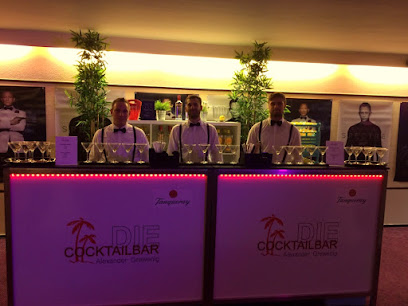
Rheinstrand Speyer
10.4 km
Experience the charm of Rheinstrand Speyer, where scenic river views meet refreshing drinks in a relaxed atmosphere.
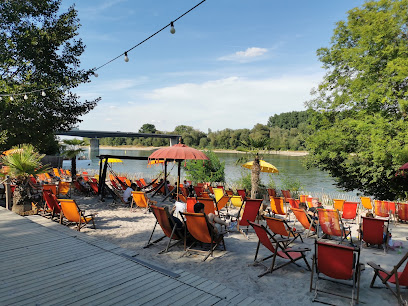
Die Kneip
19.9 km
Experience the vibrant nightlife at Die Kneip, a cocktail bar in Landau offering exquisite drinks, a lively atmosphere, and unforgettable events.
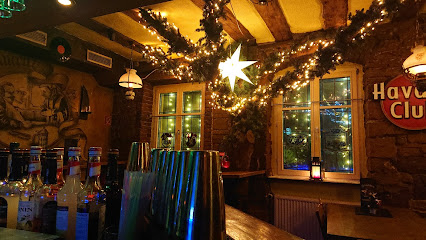
The Door - Liquid Kitchen & Highballs - Cocktailbar
24.8 km
Discover exquisite cocktails and a refined atmosphere at The Door - Liquid Kitchen & Highballs, Karlsruhe's premier cocktail bar.
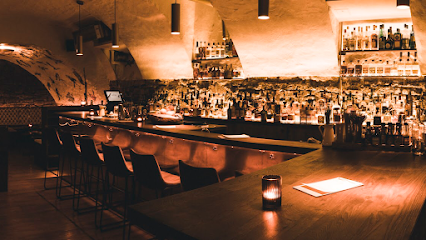
Neckarorte Strandbar Römerbad
29.1 km
Experience the charm of Neckarorte Strandbar Römerbad, a scenic riverside bar in Heidelberg offering affordable drinks and a vibrant atmosphere.
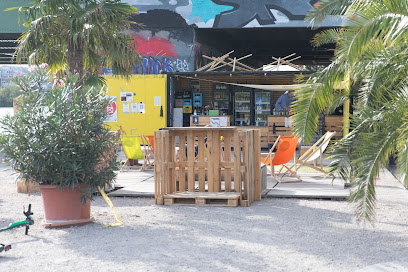
LINO'S Bar
29.6 km
Explore the vibrant nightlife of Heidelberg at LINO'S Bar, where expertly crafted cocktails and a lively atmosphere await.
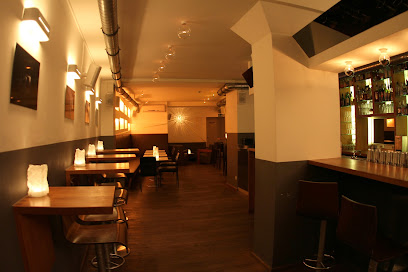
Ginsburg
29.8 km
Discover the vibrant atmosphere at Ginsburg, a bar in Heidelberg offering craft cocktails and a lively nightlife experience.
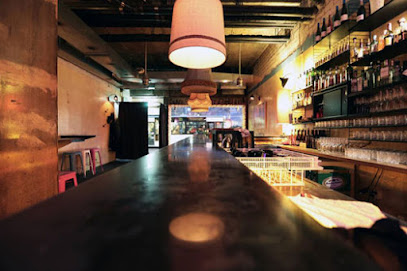
Hunter Bar - Ludwigshafen am Rhein
29.8 km
Experience the vibrant nightlife at Hunter Bar in Ludwigshafen am Rhein, where great drinks and friendly atmosphere await.
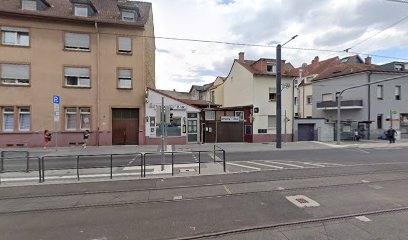
Sieferle & Sailer - Bar & Barber Shop
29.9 km
Discover the perfect blend of cocktails and grooming at Sieferle & Sailer in Mannheim - a unique bar and barber shop experience.
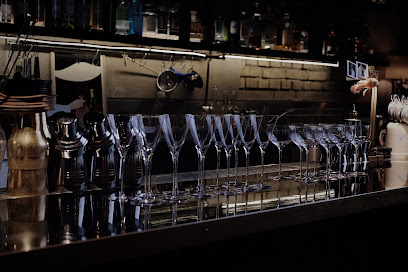
Hemingway's Heidelberg
30.0 km
Experience the charm of Heidelberg at Hemingway's, a lively bar and restaurant with a delightful beer garden and diverse menu.
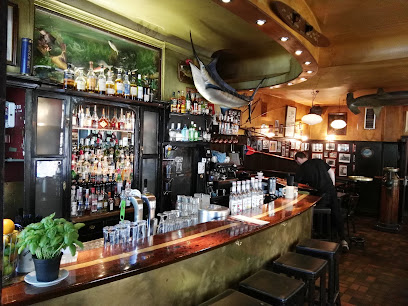
Bar Centrale
30.0 km
Discover the cozy charm of Bar Centrale in Heidelberg, where delightful breakfasts meet a lively bar atmosphere for an unforgettable experience.
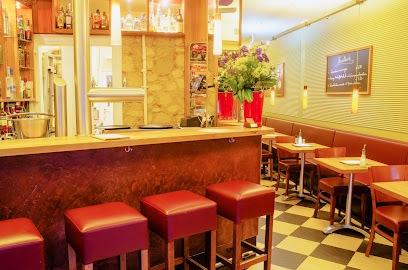
Bairro, Café - Bar
30.1 km
Experience the vibrant atmosphere of Bairro Café - Bar in Heidelberg, where delightful drinks and local culture blend seamlessly for an unforgettable visit.
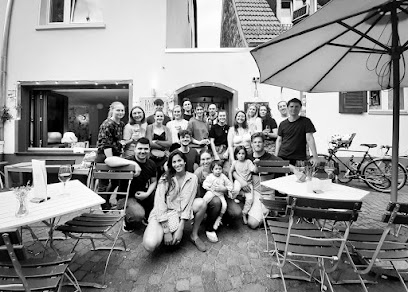
D'Acostor Italian Pub
30.1 km
Discover the vibrant taste of Italy at D'Acostor Italian Pub, a delightful gastropub in Heidelberg serving authentic dishes in a welcoming atmosphere.
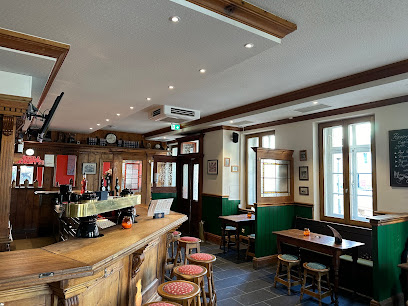
Bar d'Aix en provence
30.1 km
Discover Bar d'Aix en Provence, a cozy bar and café in Heidelberg offering exquisite wines and a warm ambiance for travelers seeking relaxation.
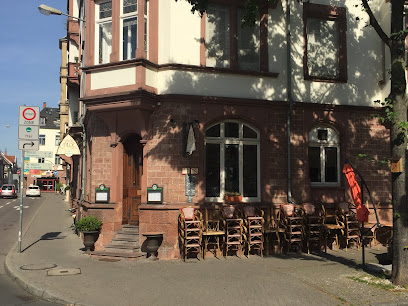
Vater Rhein
30.2 km
Experience the vibrant atmosphere and exquisite river views at Vater Rhein, Heidelberg's favorite bar and restaurant for locals and tourists alike.
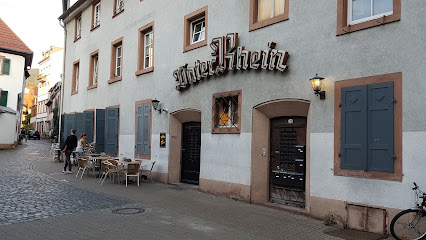
Nightclubs & after hour spots
Rheingold Nightclub, Cabaret, Tabledance - Karlsruhe
24.5 km
Discover the thrilling nightlife at Rheingold Nightclub in Karlsruhe, where cabaret meets dance in a vibrant atmosphere.
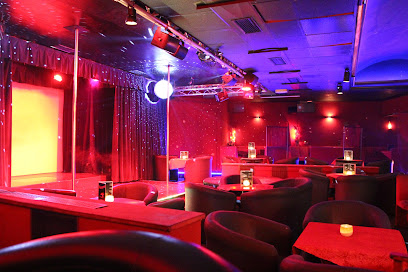
Nachtwerk Musikclub
24.7 km
Experience the vibrant nightlife of Karlsruhe at Nachtwerk Musikclub, where electrifying beats and unforgettable memories await every weekend.
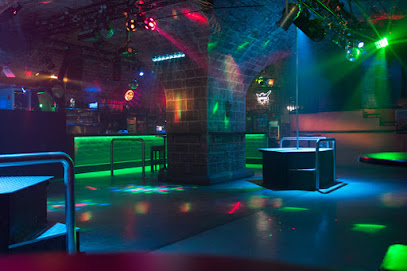
En Vogue Nightclub
24.8 km
Experience the energetic nightlife at En Vogue Nightclub in Karlsruhe, where the dance floor pulses and the atmosphere electrifies.
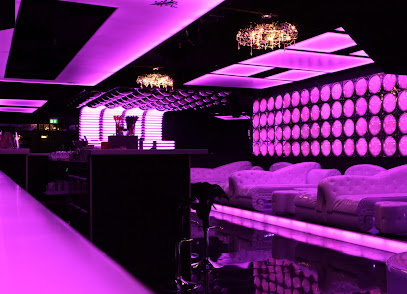
Escape night club
27.8 km
Experience the vibrant nightlife at Escape Night Club in Ludwigshafen, where music, dance, and unforgettable moments come together.
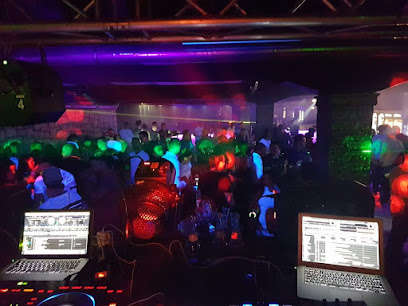
Tiffany-Girls
28.4 km
Experience the electrifying nightlife at Tiffany-Girls, Heidelberg’s premier night club, where unforgettable moments and vibrant energy await every visitor.
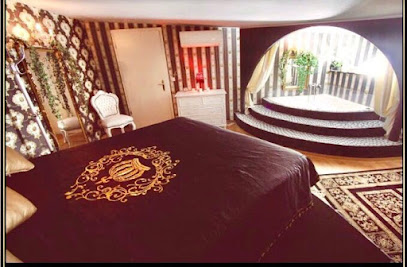
Villa Belfort
28.7 km
Experience the electrifying nightlife of Heidelberg at Villa Belfort, where music, dancing, and vibrant energy await you.
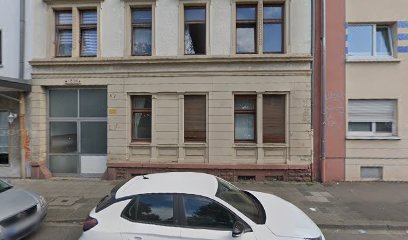
Karlstorbahnhof Mitte
29.7 km
Karlstorbahnhof Mitte: The heart of Heidelberg's nightlife, where unforgettable dance experiences await amidst vibrant music and a lively crowd.
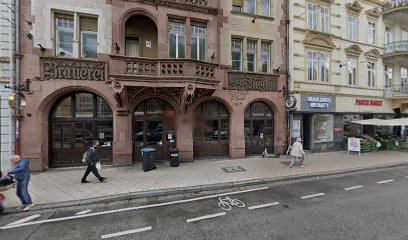
Europa Bar & Smokers Lounge
29.8 km
Discover the elegance of Heidelberg at Europa Bar & Smokers Lounge, where cocktails, piano music, and sophistication meet.
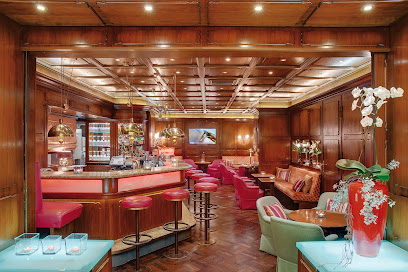
Toniq Club - Heidelberg
29.9 km
Unleash your night at Toniq Club in Heidelberg, where the dance floor beckons and the beats never stop.
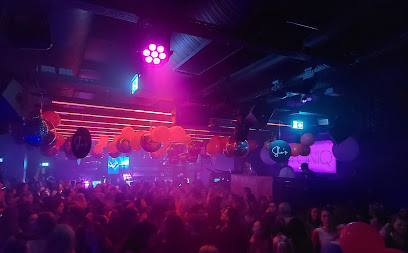
ROOM
30.3 km
Discover the electrifying nightlife at ROOM Night Club in Bad Dürkheim, where music, dance, and unforgettable experiences come together.
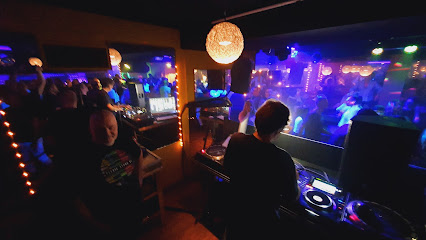
Club 1900
30.6 km
Dive into the energetic nightlife of Heidelberg at Club 1900, where great music and vibrant ambiance await you.
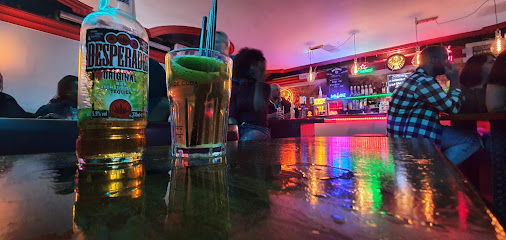
Cave 54
30.9 km
Dive into Heidelberg’s nightlife at Cave 54, the ultimate dance club featuring eclectic music, a vibrant atmosphere, and unforgettable experiences.
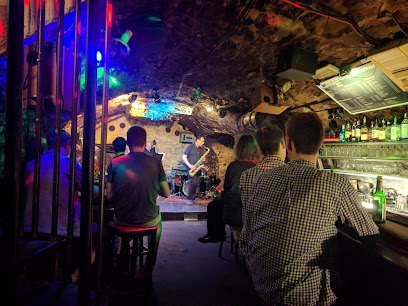
Jazzhaus Heidelberg
31.1 km
Discover the heart of Heidelberg's nightlife at Jazzhaus, where live music and vibrant performances create unforgettable experiences.
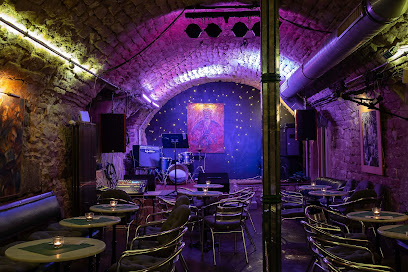
Nobless Club Thr3e
31.6 km
Discover Mannheim's nightlife at Nobless Club Thr3e, a vibrant disco club and bar offering unforgettable late-night experiences.
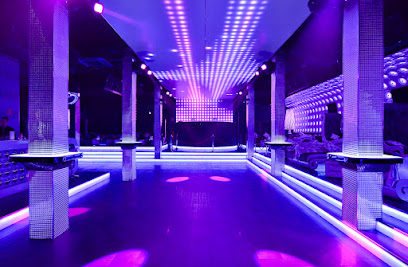
FOXY CLUB
50.3 km
Discover the electrifying nightlife at FOXY CLUB in Kaiserslautern, where dance, drinks, and unforgettable experiences await you.
